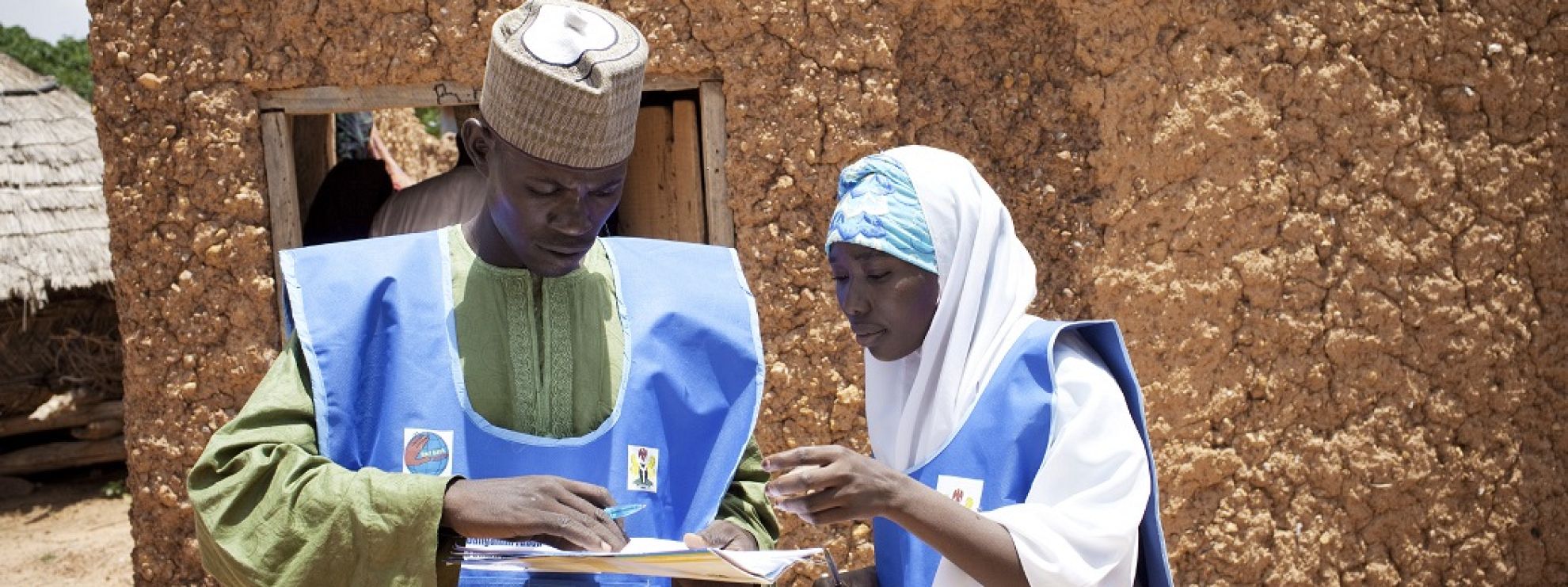
Eight-year programme contributes to significant malaria decrease in Nigeria
18 February 2016Abuja, 18 February 2016 - “I am inspired by the efforts of SuNMaP and its partners. There is no question that SuNMaP has had a huge impact upon malaria in Nigeria.”
Dr Ngozi Azodoh, Assistant Director - MDGs and Resource Mobilization at Federal Ministry of Health was speaking at the Support to National Malaria Programme (SuNMaP) end of project dissemination event in Abuja, Nigeria on Thursday.
SuNMaP was launched in 2008 at a time when malaria was having a devastating impact upon Nigeria. The disease accounted for 60 percent of outpatient visits, placing a huge burden on the health system. Malaria was the cause of 30 percent of deaths in children under five – over 300,000 deaths every year.
SuNMaP is one of the largest programmes funded by the Department for International Development (DFID)/UK aid. Led by Malaria Consortium, in partnership with GRID Consulting and Health Partners International, the programme has contributed significantly to declining malaria rates and deaths in Nigeria.
At the dissemination event delegates heard how, during its eight years of implementation, SuNMaP provided technical assistance to the Nigerian National Malaria Elimination Programme (NMEP) to scale up malaria control across ten states. Since 2008, SuNMaP has:
- Saved the lives of 48,000 children under the age of five
- Distributed twelve million long-lasting insecticidal nets, contributing to the increase in coverage from 7 to 58 percent between 2008 and 2014
- 2.7 million malaria rapid diagnostic tests and 2.7 million antimalarial drugs (artemisinin-combination therapies – ACTs) were distributed
- Over 5 million ACTs were sold through the strengthened commercial sector
- 23,000 health workers were trained to diagnose and treat malaria in their communities
“DFID is proud to have supported SuNMaP, and I am proud to know that it has contributed substantially to the progress of the last decade. It is globally recognised as a model malaria project,” said Dr Ebere Anyachukwu, Health Advisor, DFID in Nigeria.
SuNMaP is also a model example of how to use a programme targeting a single disease to strengthen a country's health system. SuNMaP built capacity for more effective programme management, trained health workers, supported the NMEP to develop research priorities and national strategies, burgeoning commercial sector for supplies and health system strengthening, and
Despite good progress, malaria still causes over 100,000 deaths in Nigeria each year. The costs of treatment traps the poorest and most vulnerable in a cycle of suffering and poverty, and it is estimated that malaria still costs the country US$1 billion annually.
Combating malaria in Nigeria is not just a priority for the Nigerian Government. Making progress in Nigeria, which continues to suffer one of the highest disease burdens in the world, will be vital for global efforts to defeat malaria to achieve the Sustainable Development Goals (SDGs).
“If we are to meet the global targets for defeating malaria, the world must continue to support Nigeria to make significant progress during the SDG era,” explained Charles Nelson, Chief Executive of Malaria Consortium. “Eliminating the disease in currently low transmission settings is clearly important – but we need to continue efforts where the burden of malaria remains highest.”
In order to sustain the recent advances and then accelerate progress in Nigeria, it is important that the successor to SuNMaP supports the Nigerian Government to keep up and even build on this momentum, and achieve their ambitious target of reducing malaria deaths to zero by 2020.
There are challenges, however, none larger than the need for increased funding, as Mr Nelson explained: “Defeating malaria in Nigeria will not be an easy task. It will require a doubling of malaria funding, from both the international donor community and Nigerian domestic sources.”
Resources:
Country: Nigeria
Keywords: Vector control | Treatment | Private sector | Preventive treatments | Maternal, neonatal and child health | Health system strengthening | Facility health services | Diagnosis | Advocacy and policy
Related content
16 February 2016
Support to National Malaria Programme 2008–2016
16 February 2016Malaria control Nigeria: State fact sheets
16 February 2016Support to National Malaria Programme: Stories of success
Latest news
- Malaria Consortium honoured by Ugandan government for contribution to combat malaria23rd April 2024
- International summit calls for AMR accountability in public health interventions21st March 2024
- Global SMC community celebrates new milestone at SMC Alliance Annual Meeting in Nigeria6th March 2024
- Scaling up key interventions could halve pneumonia-related childhood mortality13th February 2024
- Malaria Consortium and eGov Foundation join Mozambique’s national malaria programme to digitalise seasonal malaria chemoprevention campaigns8th February 2024
- World’s first malaria vaccine rollout launched in Cameroon22nd January 2024